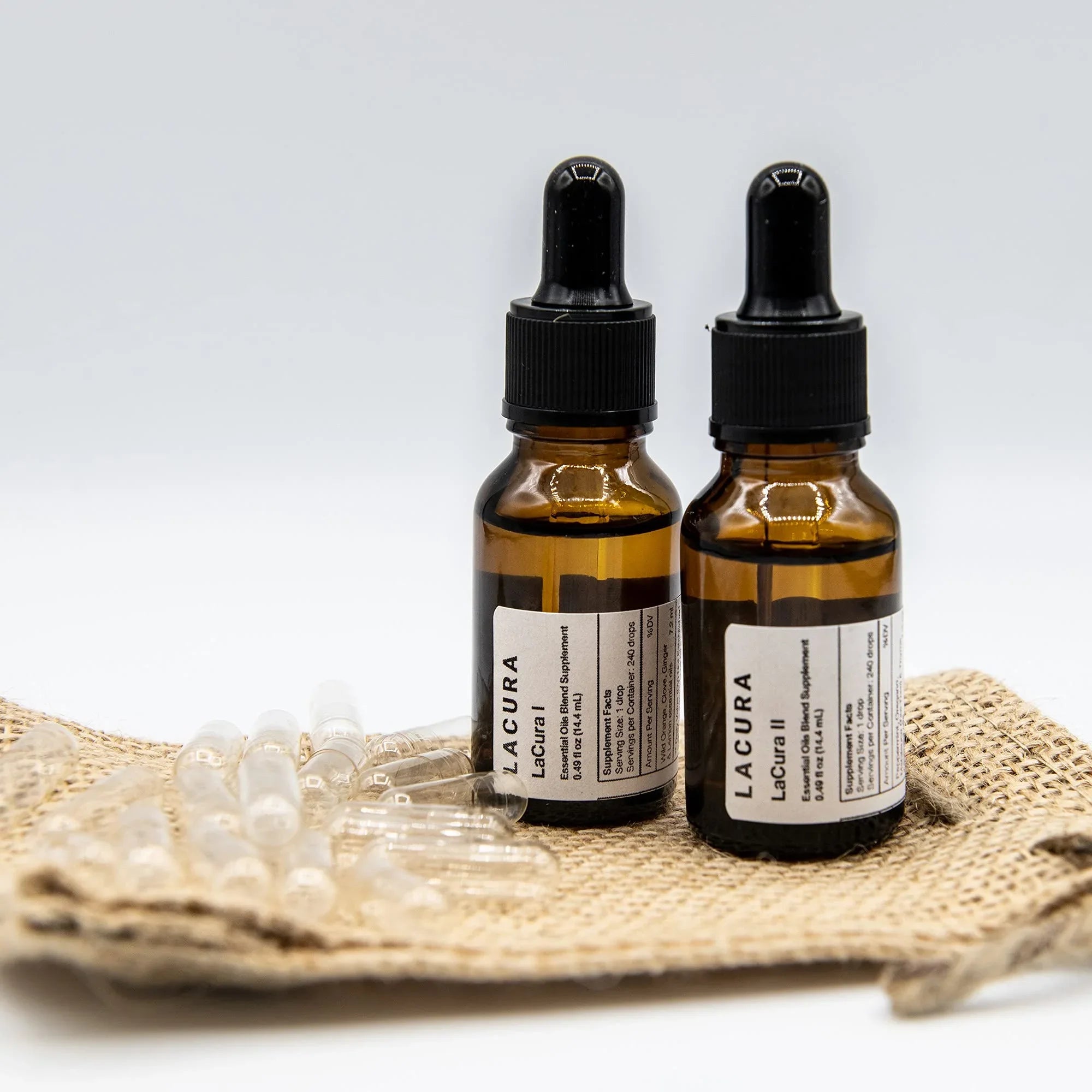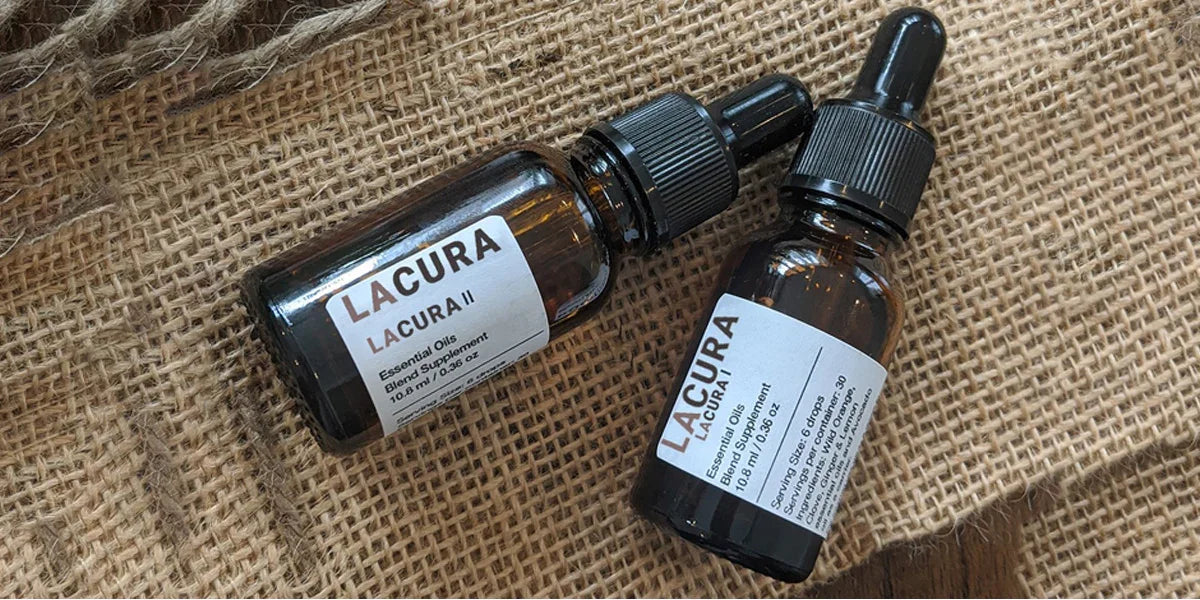Have you ever hesitated before cracking an egg into the pan, worried about the cholesterol affecting your heart health? Or perhaps paused when considering shrimp, wondering if its high cholesterol content could harm your cardiovascular system? For years, we've been told that cholesterol, especially dietary cholesterol, is detrimental to our health. However, newer research presents a different perspective, suggesting we might have misunderstood cholesterol's role in our bodies. While it's always important to be mindful of what we eat, emerging studies offer a clearer understanding of how cholesterol works and what truly affects our heart health.
In this article, we’ll dive into why dietary cholesterol may not be as harmful as you think, highlight what you should focus on instead, and explore how certain essential oils can improve overall health and wellness.
What is dietary cholesterol, and why does your body need it?
Understanding cholesterol basics
Cholesterol is a waxy, fat-like substance found in our bodies and animal-based foods. When people talk about “dietary cholesterol,” they refer to the cholesterol found in foods such as eggs, shellfish, dairy, and meats. Despite its villainous reputation, cholesterol is essential for many bodily functions: it helps build cell membranes, produces hormones, and even synthesizes vitamin D.
Your body can produce its own cholesterol, primarily in the liver. Even if you consume very little dietary cholesterol, your body tends to compensate by producing more. This balancing act indicates that cholesterol is critically important for survival. One might wonder why cholesterol has been viewed negatively over the years. The truth lies in the complex relationship between dietary cholesterol, blood cholesterol, and other risk factors that collectively influence heart health.
The importance of cholesterol for hormones and cells
Far from being an unnecessary by-product, cholesterol plays a key role in the body’s chemistry. It helps synthesize cortisol, which is essential for responding to stress and regulating metabolism. Additionally, cholesterol is a component of bile acids, which help digest fats in our meals. So, the next time you’re enjoying eggs at breakfast, remember that your body needs some amount of this nutrient.
What’s the difference between dietary cholesterol and blood cholesterol?
Dietary vs. circulating cholesterol
Dietary cholesterol refers to the cholesterol you consume through foods—think eggs, shrimp, cheese, organ meats, and so on. Blood cholesterol (often measured as total cholesterol, LDL cholesterol, HDL cholesterol, and triglycerides in your blood tests) is the cholesterol circulating in your bloodstream. Confusion usually arises because, for many years, it was assumed that a high dietary cholesterol intake would automatically lead to high blood cholesterol levels. However, the relationship between the two isn’t always direct or one-to-one.
Your body has an internal regulation system. If you eat more cholesterol, your liver usually adapts by producing less, maintaining a stable level in the bloodstream. Conversely, if your diet is low in cholesterol, your body often produces more to ensure enough for critical functions. That’s why some people can eat eggs daily without seeing a significant increase in their blood cholesterol levels, while others may be more sensitive and experience a slight rise.
HDL vs. LDL: The good, the bad, and the context
It’s important to note that not all cholesterol in your bloodstream is created equal. You’ve likely heard of “good” and “bad” cholesterol. High-density lipoprotein (HDL) is often called “good” because it helps remove excess cholesterol from the bloodstream and transports it to the liver for excretion. Low-density lipoprotein (LDL), or “bad” cholesterol, can accumulate on artery walls, forming plaque. However, even this dichotomy is overly simplistic. LDL particles come in various sizes, and some research suggests that smaller, dense LDL particles may be more harmful than larger, fluffier ones. So, while “high LDL” may raise concerns, understanding the LDL type is also essential.
Doesn’t eating cholesterol raise blood cholesterol?
What new research says about cholesterol
It’s long been believed that eating cholesterol leads to high cholesterol in the blood—and, by extension, an increased risk of heart disease. However, many large-scale studies have shown that moderate consumption of cholesterol-rich foods doesn’t drastically raise blood cholesterol levels for most individuals. That’s not to say there’s no effect at all. Some people exhibit a “hyper-responder” profile, meaning they are more sensitive to dietary cholesterol. Still, most of us are either standard or “hypo-responders,” experiencing minimal changes in blood lipids even when our diets include foods containing cholesterol.
One reason we might be thinking about cholesterol incorrectly is that other dietary components, like saturated and trans fats, genetic predispositions, overall lifestyle, and physical activity levels, overshadow the impact of dietary cholesterol on blood lipid profiles. The best way to know how your body responds is to have your blood levels tested periodically. That way, you can make informed decisions based on your health profile.
Why the restrictive dietary guidelines are easing up
In 2015, the U.S. Dietary Guidelines Advisory Committee removed its recommendation to strictly limit dietary cholesterol to 300 milligrams daily, acknowledging that “cholesterol is not a nutrient of concern for overconsumption.” This shift followed scientific reviews suggesting that the link between dietary cholesterol and cardiovascular disease risk is weaker than previously thought. While this doesn’t give you carte blanche to binge on high-cholesterol foods—since moderation still matters—it does challenge the idea that eggs or shellfish are ticking time bombs for your arteries.
If cholesterol doesn’t contribute to heart disease, what does?
The Real Dietary Problem: Inflammatory Oils
Modern diets contain processed seed oils—corn, canola, soybean, and sunflower oil—that are high in omega-6 fatty acids. When consumed in excess, these oils can trigger chronic inflammation, burden the liver, and contribute to arterial damage.
Studies show that these oils may:
-
Increase oxidative stress
-
Promote endothelial dysfunction (a precursor to atherosclerosis)
-
Contribute to metabolic syndrome
Reducing these oils and replacing them with stable, anti-inflammatory fats like olive oil, coconut oil, or grass-fed animal fats can support heart health more effectively than avoiding cholesterol-rich foods.
Lifestyle factors that matter
Other lifestyle factors, such as high stress, lack of physical activity, and excessive consumption of ultra-processed foods, can also contribute to heart disease. For example, diets rich in refined carbohydrates and added sugars have been linked to a range of metabolic issues, including insulin resistance, which is a known risk factor for heart disease. In other words, it’s more productive to consider your diet and lifestyle holistically rather than focusing exclusively on cholesterol.
We’ve entered an era where the new truth about cholesterol is that it may play a minor role in heart disease. However, no single factor works in isolation. A balanced diet, regular exercise, and effective stress management are essential for cardiovascular health. The best approach is to focus on a nutrient-rich eating pattern rather than blaming one nutrient.
The role of essential oils in managing cholesterol levels
Why look to essential oils?
By now, you might be asking: if my goal is to support healthy cholesterol levels, what else can I do beyond adjusting my diet and lifestyle? One emerging area of interest is the use of essential oils. Certain essential oils support metabolic processes, manage appetite, and improve insulin sensitivity—all factors that can indirectly influence blood cholesterol levels. If you’re looking for the best essential oil for cholesterol concerns or overall metabolic well-being, explore four essential oils that help with satiety, insulin resistance, and glucose control.
Bergamot essential oil
Bergamot essential oil, extracted from the peel of Citrus bergamia, has been studied for its cholesterol-lowering effects. Clinical trials and reviews indicate that bergamot polyphenols, such as brutieridin and melitidin, can significantly reduce total cholesterol and LDL cholesterol, with reported reductions in total cholesterol up to 29% and LDL cholesterol up to 51% in some studies. In a 30-day clinical trial, supplementation with bergamot polyphenol decreased total cholesterol from 262 to 196 mg/dL and LDL cholesterol from 175 to 116 mg/d. These polyphenols appear to inhibit cholesterol biosynthesis and enhance LDL receptor activity, mechanisms that are similar to, but distinct from, statin drugs.
Cypress essential oil
Cypress (Cupressus sempervirens) essential oil has traditional uses for cardiovascular health. Studies suggest that cypress cone extract can significantly lower serum cholesterol levels, and its hepatoprotective properties may support liver function, which is vital for cholesterol metabolism.
Lavender Essential Oil
Lavender (Lavandula angustifolia) essential oil is best known for its calming effects, but research also points to potential benefits for cholesterol management. A study found that lavender essential oil modulates hepatic cholesterol metabolism in cell models, affecting cholesterol uptake and biosynthesis proteins. While animal studies have shown improved lipid profiles, more human research is needed to confirm these effects.
Rosemary Essential Oil
Rosemary (Rosmarinus officinalis) essential oil contains antioxidants like carnosic acid and rosmarinic acid, which may help lower cholesterol and protect the liver. Studies in rats have shown that rosemary essential oil reduces cholesterol and triglyceride levels while increasing HDL cholesterol. Its antioxidant and hepatoprotective effects may help prevent LDL oxidation, a key factor in arterial plaque formation.
These essential oils create a powerhouse blend for people looking to improve their metabolic health. When metabolism is more efficient and insulin sensitivity is higher, it may support more balanced cholesterol levels over time. Here at LaCura, we’ve developed a range of essential oils designed to support holistic health. Our commitment to purity, organic sourcing, and rigorous testing ensures that our essential oils are safe for internal, topical, and aromatic use, maximizing their therapeutic benefits.
Frequently Asked Questions (FAQs)
Is all cholesterol bad?
Not at all. Your body needs cholesterol to function properly, as it’s involved in hormone production, vitamin D synthesis, and building cell membranes. What matters more is the type of cholesterol circulating in your blood: HDL (often called the “good” cholesterol) versus LDL (the “bad” cholesterol). Even then, the type of LDL particle can further refine your risk profile.
How much dietary cholesterol should you consume per day?
There is no one-size-fits-all answer. Individual responses to dietary cholesterol can vary. While older guidelines recommended keeping dietary cholesterol under 300 mg a day, more recent guidelines suggest that cholesterol isn’t a primary nutrient of concern for most people. Still, moderation and balance are key. Focus on the nutrient density of foods rather than just their cholesterol content.
Do I need to get my cholesterol checked?
It’s generally a good idea to have your cholesterol and other blood markers tested, especially if you have a family history of heart disease or other risk factors. Regular check-ups help you understand your risk profile. A blood test can clarify if you’re curious about how your body responds to dietary cholesterol.
Can I eat eggs, shellfish, and other high-cholesterol foods?
For most people, yes. Eggs and shellfish can be part of a healthy diet, provided they’re consumed in moderation and as part of a balanced meal plan. In fact, eggs are packed with high-quality protein, vitamins, and minerals. Shellfish contain essential nutrients like zinc and selenium. If you’re prone to hyper-responsiveness to cholesterol, you might want to monitor how these foods affect your blood lipid profile.
Does everyone respond the same to dietary cholesterol?
No. Some people are “hyper-responders,” meaning their blood cholesterol levels may rise more significantly in response to dietary cholesterol. Others are “hypo-responders” or moderate responders, experiencing minimal change. Genetic factors and overall metabolic health also play significant roles. That’s why individualized testing and medical guidance can be helpful.






